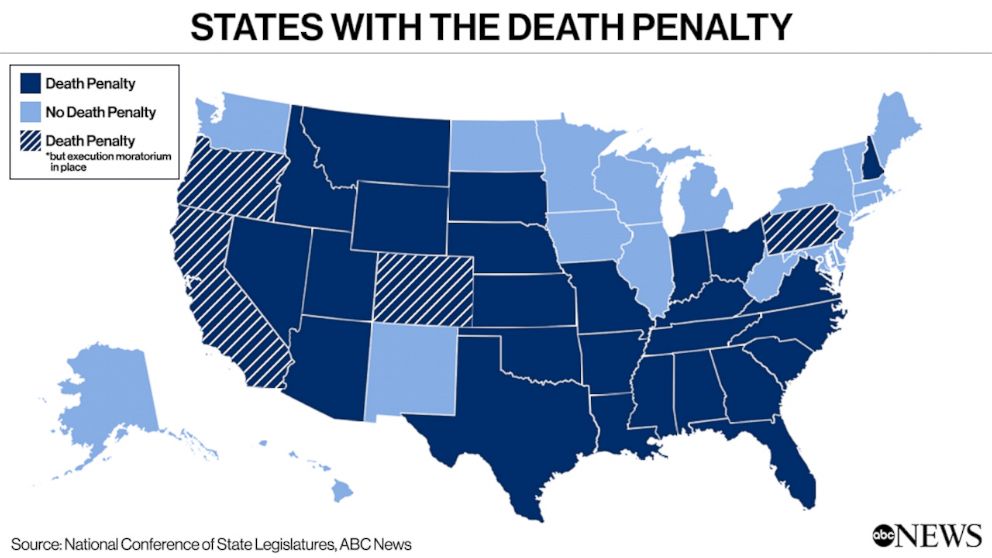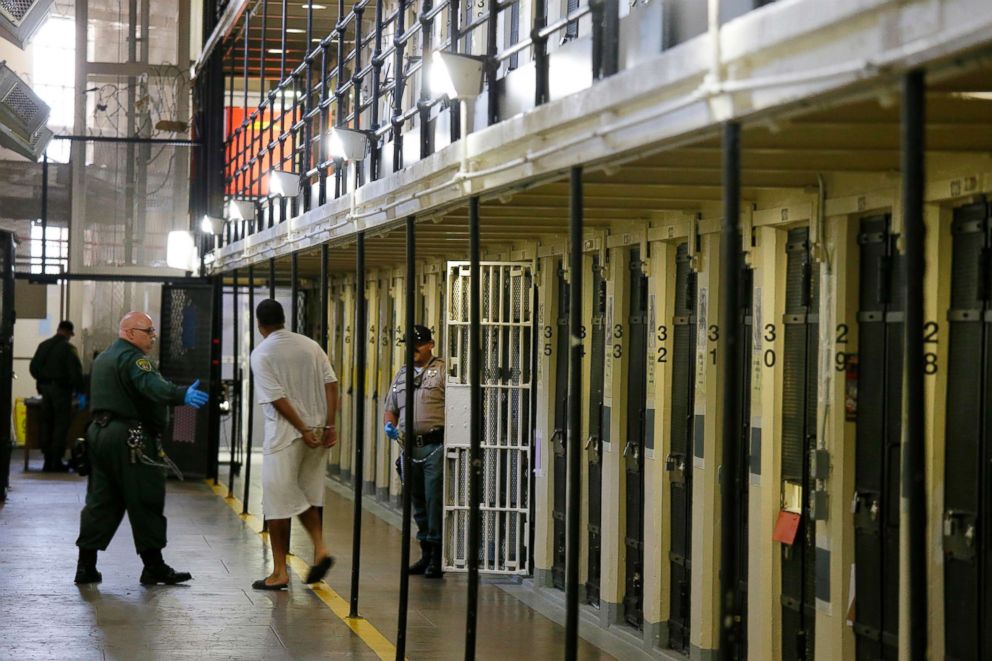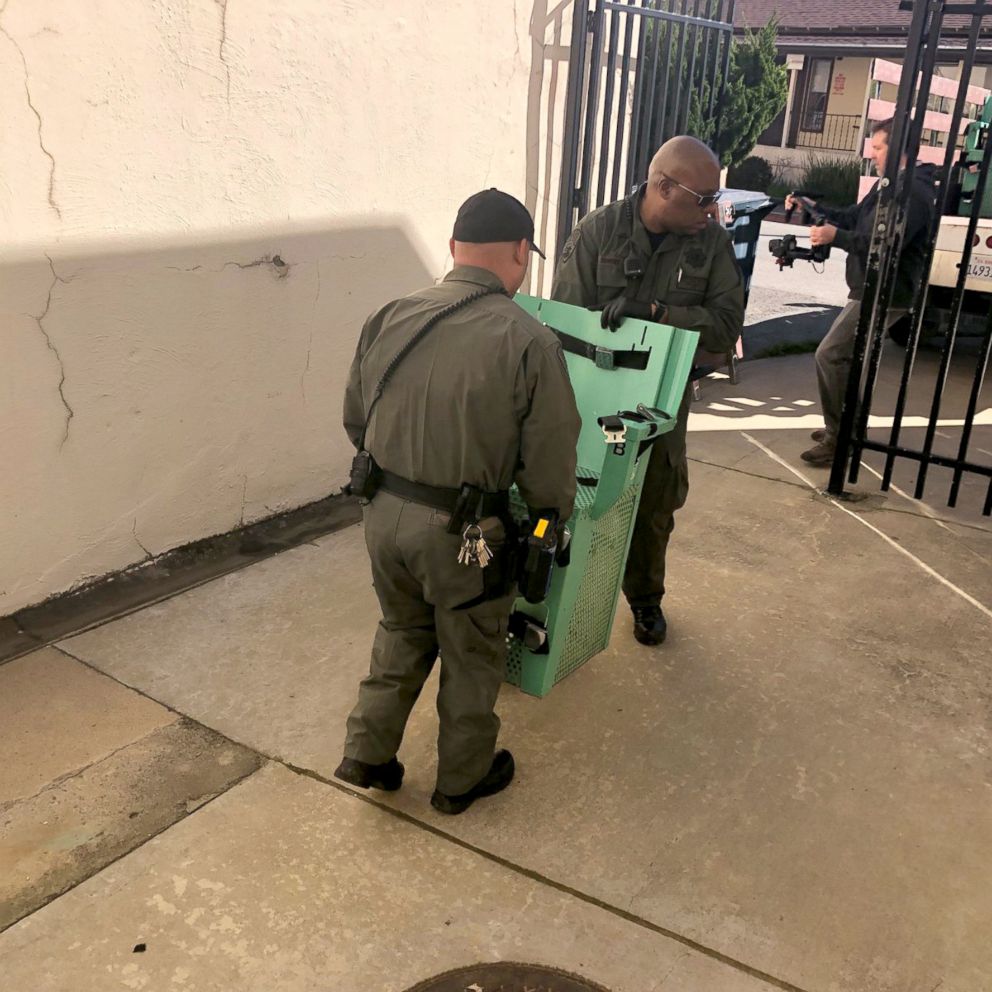Why we need the federal death penalty for cop killers: Opinion
Some states have and follow death penalty laws and others don't.

The suspect was sheathed in camouflage body armor, wore a helmet and carried an M4 style rifle -- a shorter, lighter version of the M16 assault rifle -- when police arrived earlier this week at the Arrowhead Mobile Home Park in Coffee County, Alabama in response to a call about a domestic disturbance.
This wasn’t the suspect’s first brush with the law. According to court records and reporting by the Associated Press, last November a local woman asked a judge for a court order protecting her from alleged abuse by the man.
She accused him of sexually assaulting her while she was incapacitated and feared he would harm her after learning she was pressing charges, according to reports. The Alabama judge refused the protection order following a hearing in January, ruling the woman didn't have a "qualifying relationship" with the suspect, whom she said she did not know before the alleged assault.
When police arrived, the suspect allegedly opened fire, killing veteran Auburn, Alabama police officer William Buechner and wounding two other responding law enforcement officers.
As we await the results of the full investigation into the shooting, it’s reasonable to assume that the suspect knew officers were coming and intentionally waiting to attack them – hence the body armor and helmet.
Unfortunately, these types of ambush attacks against law enforcement officers aren’t new.

Over the last few years, we have seen a steady increase in ambush style attacks and felonious killings of law enforcement officers with 2016 spiking to over 170 officers killed in the line of duty overall. Ambush style attacks that year were up 62%
We’ve also witnessed an overall increase in the number of assaults against law enforcement officers with 58,627 assaults in 2016 rising to 61, 995 in 2017. Current FBI statistics indicate that although overall officer deaths from all causes have declined so far this year, the majority of those deaths have been reported as feloniously killed in 2019.
In the case of the Alabama killing, the state charged the suspect with capital murder, three counts of attempted murder and a count of second-degree domestic abuse, which carries the possibility of the death penalty, in Alabama. .
“When you shoot a police officer, we’re going to pursue the death penalty,” Lee County District Attorney Brandon Hughes reportedly said at a news conference announcing the charges against the Alabama suspect.
And while Alabama has a death penalty, it is only one of 32 states that do, even when a police officer is killed.
Why won’t states institute the death penalty, at the least for those that kill cops?
“I feel sorry for the officer,” a candidate for district attorney in Contra Costa County, California said last year in response to a question about why he didn’t support the death penalty for those that are convicted of killing law enforcement officers. “It’s part of the risk they take as being an officer of the law.”
This was followed by California’s governor signing a death penalty moratorium, even for cop killers. Even in Florida, the state Supreme Court overturned the death penalty for two cop killers.
We have some states that have and follow death penalty laws and others that don't. We see local district attorneys and governors that also won't follow their states laws or -- some may argue --- can go overboard with it. These inconsistencies can subject the victims and their families to an uneven application of justice.

That ongoing, uneven application of justice may be what prompted President Donald Trump last week, at a podium in front of the US. Capitol during the annual National Peace Officers’ Memorial Service, to declare that “The ambushes and attacks on our police must end, and they must end right now.”
“We believe that criminals who murder police officers should immediately, but with trial, get the death penalty,” he said. “But quickly. The trial should go fast. It’s got to be fair, but it’s got to go fast.” The statement drew a round of applause from law enforcement officers in attendance.
U.S. law enforcement understands all too well that if someone is willing to intentionally target law enforcement officers for murder, they would likely target anyone, making them among the most dangerous individuals walking free on the streets of the nation today.
If you murder or target a police officer for murder, you should expect the harshest possible penalty.
Senator Patrick Toomey recognizes this, too, and re-introduced the “Thin Blue Line Act” which passed out of the House of Representatives last year but never got a vote in the Senate. This bill would make the killing of law enforcement officers a death penalty-eligible offense in the federal court system.
In his remarks, Senator Toomey said that “It’s about the criminal that would actually single out and kill a law enforcement officer. That is the most dangerous type of person in our society and that’s why this is an appropriate response.”
“If you murder or target a police officer for murder, you should expect the harshest possible penalty,” Toomey added – and he is right.
Clearly, since only 32 states have the death penalty and many states and their prosecutors can be more apt to make political rather than policy decisions concerning cop killers, it would seem the federal court system may be the last bastion of justice for these most dangerous among us. To be fair, the same holds true when a state judicial systems fails to police their police and the federal system steps in, usually with federal civil rights charges.

The American Civil Liberties Union (ACLU) has questioned the need for a federal death penalty law -- saying that almost every federal death penalty case that involved the killing or targeting of a police officer would already include several “aggravating factors” and that those that kill local police officers would also be subject to the harshest possible state-level punishments -- including the death penalty in states that allow it.
The ACLU and others need to look no further than to the states with no death penalty and even in the ones that do, where political decisions about what punishments to seek in cop killer cases are made.
Opinions expressed in this column do not necessarily reflect the views of ABC News.
Richard Frankel is an ABC News contributor and retired FBI special agent who was the special agent in charge of the FBI's Newark Division and prior to that, the FBI's NY Joint Terrorism TASK force. He is currently the Vice President of Investigation for T&M Protection Resources.
Donald J. Mihalek is an ABC News contributor, retired senior Secret Service agent and regional field training instructor who also serves as the executive vice president of the Federal Law Enforcement Officers Association Foundation.




